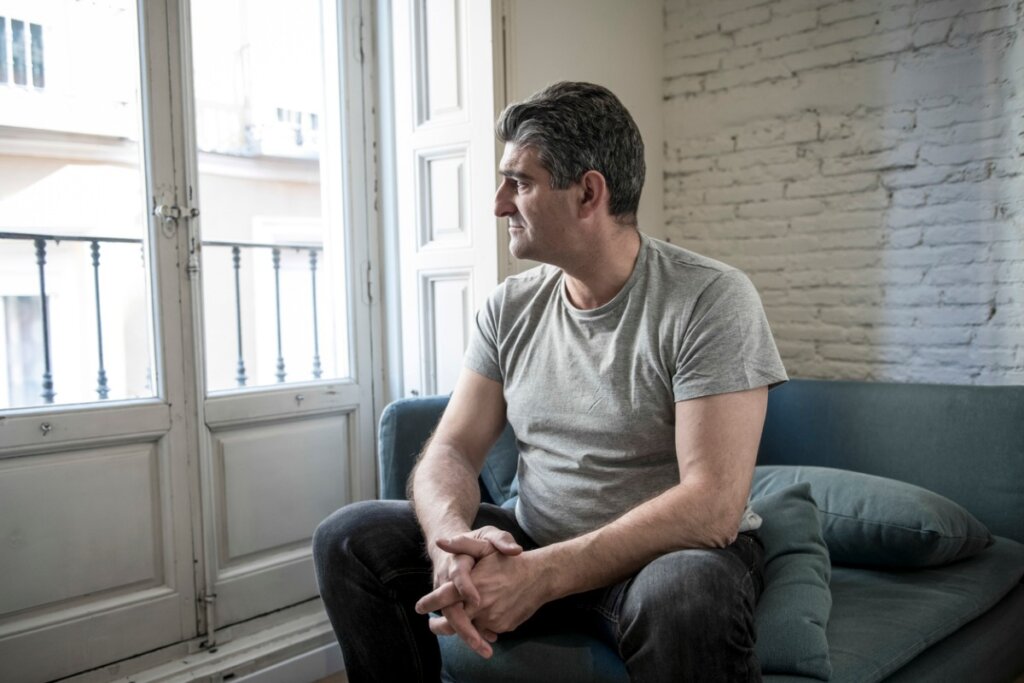You Always Need Your Parents (Even When They're No Longer Around)


Written and verified by the psychologist Valeria Sabater
There’s one curious thing about us humans. It’s the fact that we spend much of our lives trying to distance ourselves and become independent from our parents. Yet, once we’ve conquered our precious autonomy, we become aware of how much we really need them. However, we do this just as they’re starting to lose their independence.
It’s often said that it’s not a good idea to be too needy, so we should avoid attachments. But, we’re social and emotional beings. As such, we need to build and care for our relationships. In fact, feeling attached and experiencing the need to be close to our parents, far from being pathological, is a natural instinct that allows us to care for each other.
Therefore, sometimes, despite being an adult, you still need your parents’ support in numerous ways. For example, advice, emotional support, help in the upbringing of your own children, or just feeling close to them. Without a doubt, your parents form an indisputable pillar in your emotional well-being that goes beyond age. This explains why, often, when they’re no longer with you, you still long to have them close by.
No matter where the journey of your life might take you, you always have the need to return home.

When your parents become vulnerable
You always need your parents, even when they need you more. As a matter of fact, few experiences can be more difficult than those in which, suddenly, the figures that not long ago watched over you like titans, become vulnerable. Indeed, real old age isn’t brought about by the years but by physical limitations, fragile bodies, absent minds, and changing personalities.
As surprising as it may seem, when your parents become dependent on you, you continue to need them in endless ways. It doesn’t matter that they no longer fix everything for you, give you pocket money, or cook your dinner every day.
Taking care of those who took care of you involves acts of love, responsibility, and social justice.
Inside, you’re still the child who often yearns for your parents of yesteryear. You long to find your father, the one who would’ve crossed a thousand mountains for you. Or your mother, who made the impossible easy and reminded you that you were worthy of working toward your dreams.
When you become a parent of your own parents, you need them to stay with you as long as possible. But, you also miss those years when you were a child and they were your most solid and motivating mooring.
When one of your parents becomes dependent, a new stage opens in your life, one in which you must learn to love them in a different way. You need to grieve and understand that your role is no longer the same. The fact that a part of you continues to need the person your parent used to be is also a normal process.
You always need your parents
It seems we still need our parents even when they’re no longer with us. In fact, an investigation conducted by the University of Liverpool (UK) claims that experiencing the death of a parent as a child has a huge impact on development.
However, it also affects us in adulthood. Indeed, adults who lose their parents often experience persistent complex grief disorder. This means they’re unable to overcome their absence and their own feelings of emptiness. In effect, their pain is frozen. It can take months or years to resume their lives and escape the emotional numbness.
Therefore, in one way or another, you always need your parents, even though they may no longer be physically there. This is completely normal and understandable. After all, the imprint of your affection and longing for those people who’ve been mainstays in your heart for so long remains. In time, you’ll manage to live without them. But, you’ll still keep them alive in your memory, while gradually moving forward.
Losing our parents is one of the most traumatic life experiences that we have to face.

Not having the parents we think we deserved
Some fathers don’t love their children. And, some mothers may claim they love their children but don’t. In fact, there are dozens of reasons why maternity and paternity might not be exercised well. Sometimes, there are mental or social problems. Or, there can be personality factors or addictions. On the other hand, there may be no clear cause of why such a situation occurs.
As a result, many people grow up without the kind of caregivers they deserved. Due to this emotional wound and the shortcomings of their parents, they need something concrete. Indeed, due to the damage they’ve sustained over the years, part of them wishes they’d had valid emotional support and that their parents had been different. They’d like them to have been less harmful presences and more nourishing sources of support.
It’s perfectly valid and understandable that they now feel they need what they didn’t but should’ve had. Because every human being deserves affectionate caregivers, the kinds who educate with safety, love, and respect. Every child needs this substrate to survive and develop. When it fails, their silent desire for what they should’ve had remains.
Finally, there’s nothing as common as continuing to need those presences who were or still are our sources of support. Parents don’t live forever, but they’re forever in our hearts, even when they’re no longer around.
All cited sources were thoroughly reviewed by our team to ensure their quality, reliability, currency, and validity. The bibliography of this article was considered reliable and of academic or scientific accuracy.
- Hareven, T. (2001). Historical perspectives on aging and family relations. In R. Binstock & L. K. George (Eds.), Handbook of aging and social sciences (5th ed., pp. 141–159). San Diego, CA: Academic Press.
- Hayslip, B., & Patrick, J. H. (2002). Working with custodial grandpar New York: Springer.
- Pearlin, I., Pioloi, M. F., & McLaughlin, A. E. (2001). Caregiving by adult children. In R. Binstock & L. K. George (Eds.), Handbook of aging and social sciences (5th ed., pp. 238–254). San Diego, CA: Academic Press.
- Uhlenberg, P. (1996). The burden of aging: A theoretical framework for understanding the shifting balance of caregiving and care receiving as cohorts Gerontologist, 36,761–767.
- Yalom, I. (2012). Love’s Executioner & Other Takes of Psychotherapy. New York, NY: Basic Books
This text is provided for informational purposes only and does not replace consultation with a professional. If in doubt, consult your specialist.








